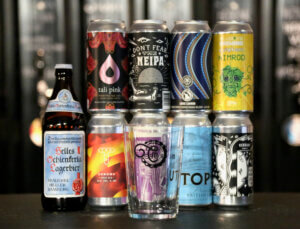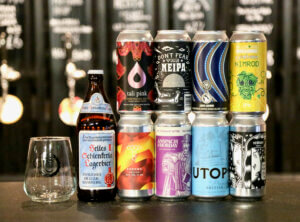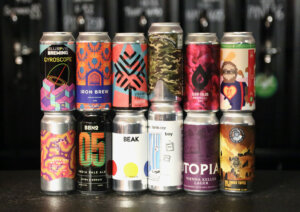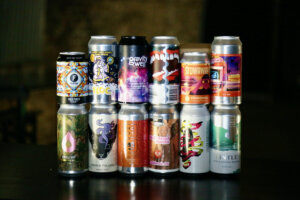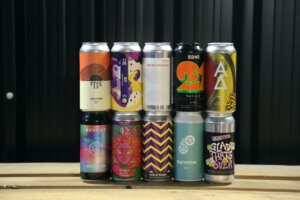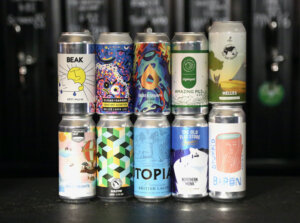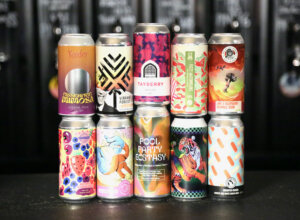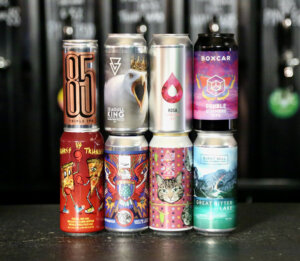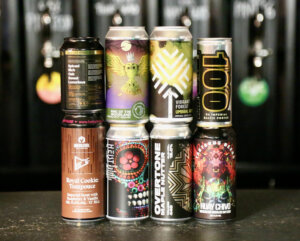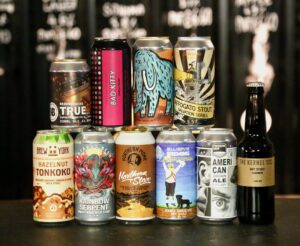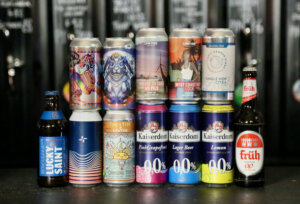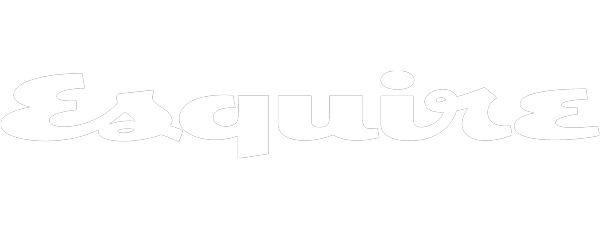*** BRIXTON IS CLOSED TONIGHT (FRI) FOR A PRIVATE EVENT. PENGE OPEN AS USUAL*** LAST POST FOR XMAS IS MONDAY 22ND AT 1PM. PLEASE ORDER EARLY!***
Posted on 24/05/17
Craft Beer has always prided itself on being a fight against mass-produced breweries that have traded quality for quantity. However as craft beer has gained popularity, once independent micro-breweries are growing into international multi-million pound businesses. Brands like BrewDog are now setting their sights on reaching the same heights as the very brewers they once fought against – even though they may not admit it. What’s more is those very same mass-produced multi-national breweries have now clocked on to the craft beer market, and are starting to brew craft beer of their own, or how they market as “craft beer” anyway. So is BrewDog now sacrificing quality to take a seat with the big dogs?
BrewDog started brewing in the UK back when craft beer was seen as a small obscure trend that would at best turn into a quirky niche. They used shock tactics, a ballsy carefree approach and smashed through all expectations, managing not only to become the biggest producers of craft beer in the UK but also managed to bring craft beer into the mainstream. You could argue that they were perhaps what Nirvana was to the Grunge movement, they brought the movement to the masses, whilst being shunned by the movement itself for being too mainstream.
BrewDog remains very popular amongst the general public however writers of craft beer such as, Jack Peat have been highly critical. In the London Economic Jack wrote a pretty damning article about Brew Dog where he criticised the brewery for capitalising the words “craft” and “punk” against the very ethos they represent, citing an incident where they forced to change its name for using the word “punk” in its name as they owned the trademark to the word.
It’s not the first time that BrewDog has made a questionable legal dispute with an article in Beer Today discussing how a small independent craft beer bar by the name of The Wolf fell into conflict with brewery over the use of its brand Lone Wolf. Jack goes on to point out the irony that whilst BrewDog shaped and defined what British craft beer is, it now destroying the very meaning of what “craft” is and is instead joining the multinationals of whom they set up to fight against.
However whilst many craft beer enthusiasts continue to criticise BrewDog, BrewDog themselves continue to maintain a fight against the multi-national breweries that acquire small independent breweries. On their website’s blog they wrote an article about the sale of Camden Town Brewery to AB InBev arguing that this would result in a drastic reduction in the taste and quality of the beer, maintaining a strong stance towards the independence of craft beer which Renegade Brewery applauded.
Despite BrewDog’s impressive growth they remain an independent brewery that is philosophically devoted to craft beer and although their taste may be viewed by some as more generic and now mainstream without them the beer scene in th eUK and the flavour of the beer we love wouldn’t be what it is today. They found a way of selling craft beer to the mass market and everyone copied to some extent. But now as a larger company themselves they need to be more honest as to where they are and where they are going. No more faux-punk. To truly take their brand to the next level it’s not about sales (they will come) but they need to seize the power they have created and remain an important ally against the multi-nationals that have little interest in craft beer other than the lucrative profits it delivers. BrewDog’s ethos will continue to be questioned as they adapt to being a larger brewery that once prided itself on being small, but their commitment to good quality beer will never end.
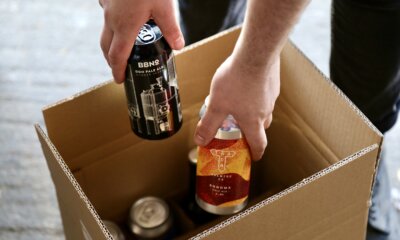 Step 1
Step 1
We trawl the globe tasting great beer


